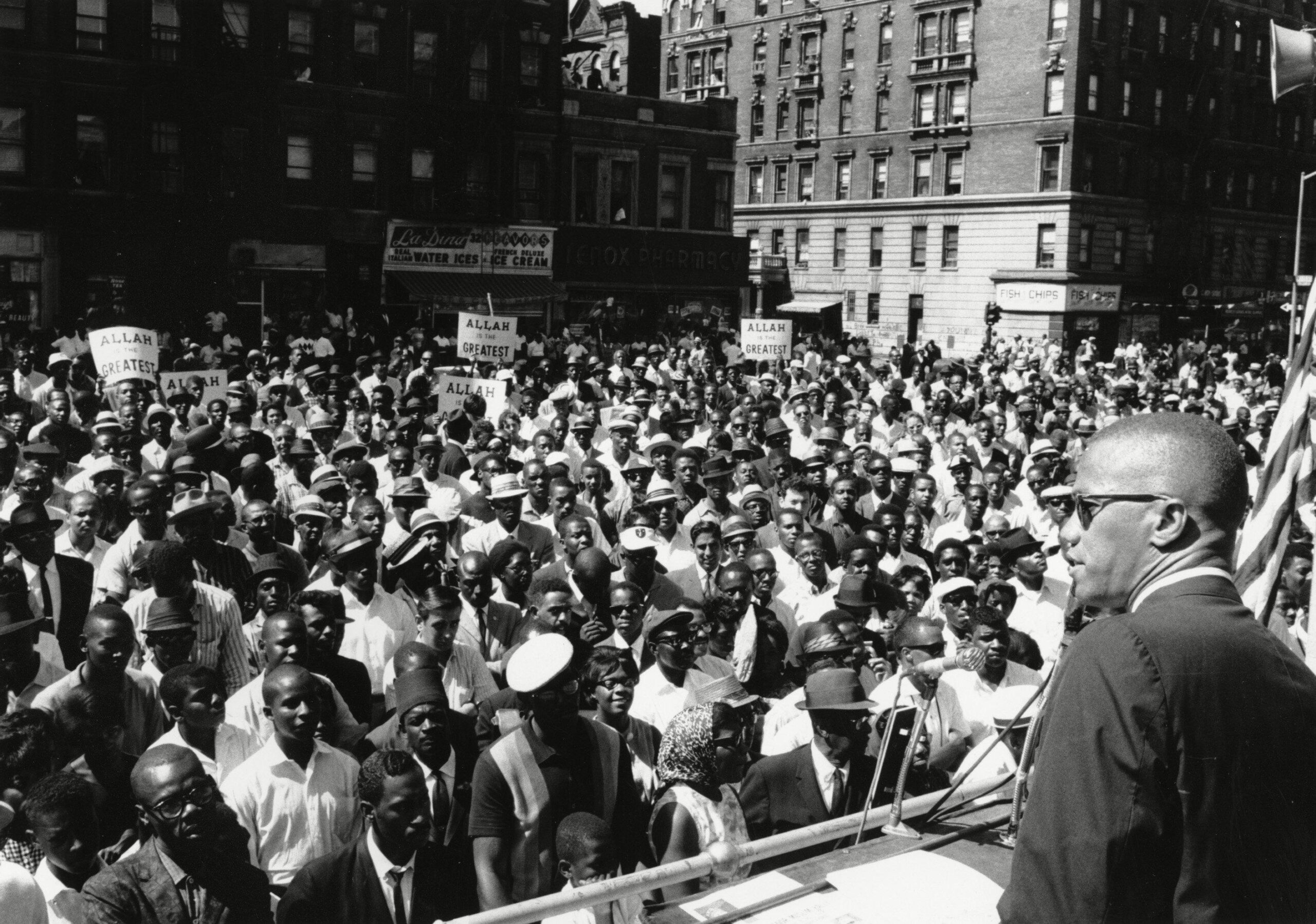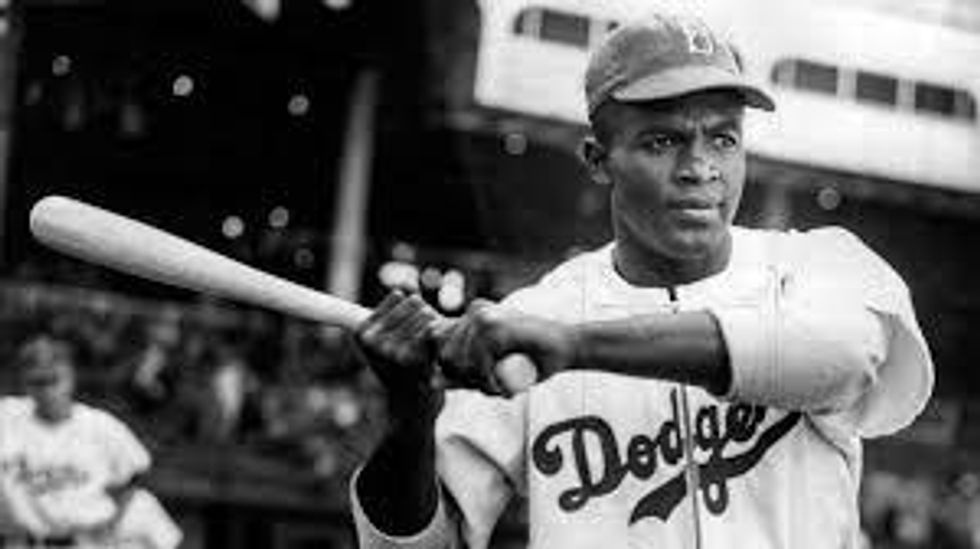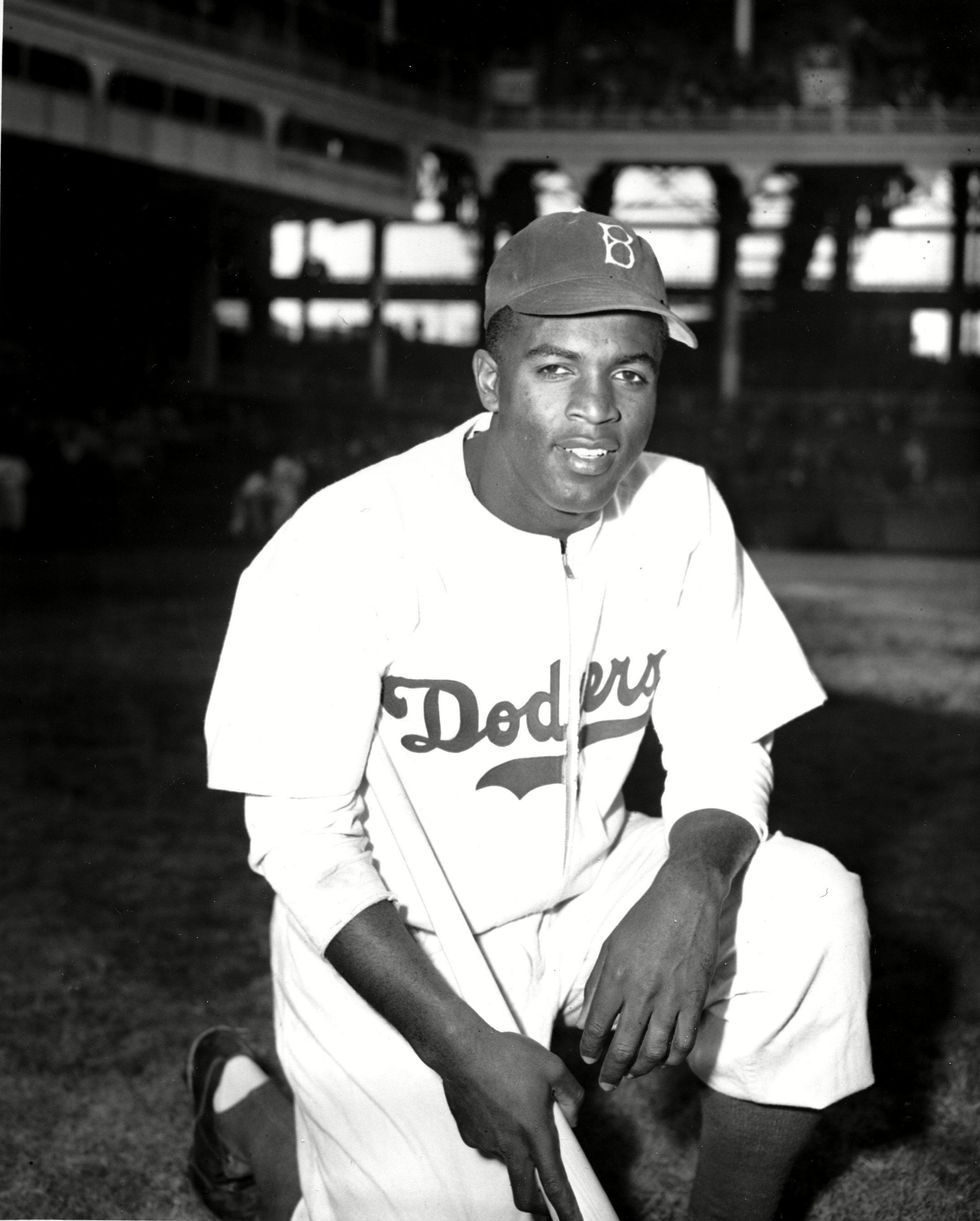
Malcolm X, Black Muslim leader, addresses a rally in Harlem in New York City
AP/Shutterstock
In February we celebrate Black History Month in America.
For the entire month, we commemorate the vast contributions from Black people who have impacted society here and abroad. After all, we are responsible for countless inventions and innovations in art, science, athletics, business, and activism, contributions that often get overlooked because of our country’s pervasive legacy of racism.
Black History Month may also be the only annual instance that this country comes close to acknowledging its racist heritage. The brilliance that Blackness has provided modern-day society is, unfortunately, also rooted in hatred and exclusion.
Recognizing the creations shaped by the hands of Black people means examining the oppressive infrastructures that sparked their genius. One of those infrastructures is slavery.
The mention of slavery prompts various reactions among white people. Some declare it to be our country’s greatest shame, while others act as if it never happened. If the latter admits to its existence, it’s to admonish others for “living in the past.”
The celebration of Black History Month and the acknowledgment of slavery go hand in hand. Although a vast majority of Black History itself isn’t a direct result of slavery, its ramifications are certainly a factor.
For instance, Martin Luther King Jr’.s vaunted legacy hinges upon his fight against racism and segregation. His peaceful marches and resounding speeches became the introduction to Black History and the Civil Rights Movement for most children in elementary schools across the country.
King is a lauded American hero for his fortitude. But his battle with a racist system is often romanticized. His reimagining sees him as a man standing up for his beliefs instead of a victim of a hateful construct who was forced to rise up against his oppressors.
The irony resides in Black people being labeled as world-changers and trailblazers in the eyes of history but only being allowed to access a small portion of it in order to apply their craft.
Similarly, Black people becoming a dominant force in sports and entertainment hasn’t been without their share of obstacles. Unlike today where they have access to a worldwide audience to entertain, Black musicians and athletes’ sole audiences used to be people who looked like them.
Sports pioneer Jackie Robinson made history as the first Black man to play professional baseball. His breaking of the color barrier instituted a new day in American sports, but the country’s prejudicial temperament remained the same. Robison received death threats from angry white fans, players, and even owners.

 Robinson Jackie Robinson of the Brooklyn Dodgers poses at Ebbets Field in the Brooklyn borough of New York. John Rooney/AP/Shutterstock
Robinson Jackie Robinson of the Brooklyn Dodgers poses at Ebbets Field in the Brooklyn borough of New York. John Rooney/AP/Shutterstock
Furthermore, musicians like Chuck Berry and Muddy Waters, who are pioneers of Rock and Roll, are credited with inspiring The Rolling Stones and Eric Clapton. But during the ’50s, their sound was classified as “race music.” Conversely, that same “race music” was acceptable when taken and repurposed by white artists.
They and others like them persevered in the face of adversity to open doors for Black people today. Their struggles are reminders of the resiliency of Black people that changed the world and the unnecessary roadblocks they had to overcome to do so.
The observance of Black History Month in today’s racial climate in America feels insincere. When entities are dedicated to oppression the other 11 months of the year, it’s hard to believe their calls for racial unity in February
We voice our grievances about the government and law enforcement’s wanton negligence daily, only to hear how stuck in the past we are as a race. Yet, that same past is responsible for the evolution of civilization as we know it today. Without Black people, America would not be the culturally rich place it is today.
Still, many feel sentiments like “Black Lives Matter” are radical movements, when in actuality they are an ever-present reminder of the conditions Black people had to navigate to pull off these incredible feats.
America cannot sincerely immerse itself in the celebration of Black History Month until it confronts its history. Racism is the beating heart beneath the floorboards of privilege. But as the beating grows louder, our country continues to disregard its pulse.
- Barnes & Noble’s Black History Month “Diverse Edition” Covers are … ›
- What to Stream in Black History Month 2021 – Popdust ›
- Best Moments of Black History Month 2021 – Popdust ›
- Barnes & Noble’s Black History Month “Diverse Edition” Covers are Hilariously Misguided – Popdust ›













